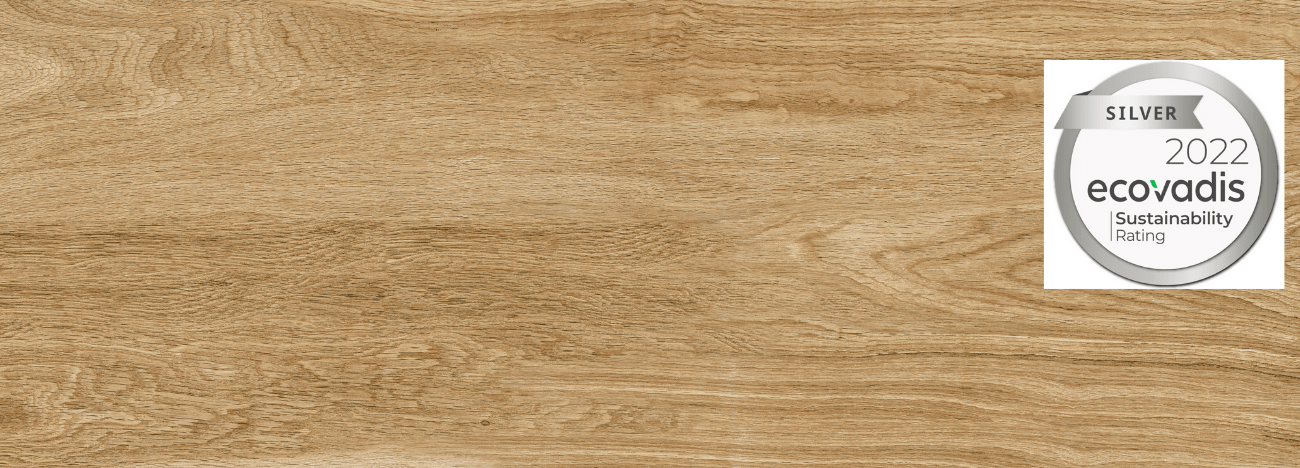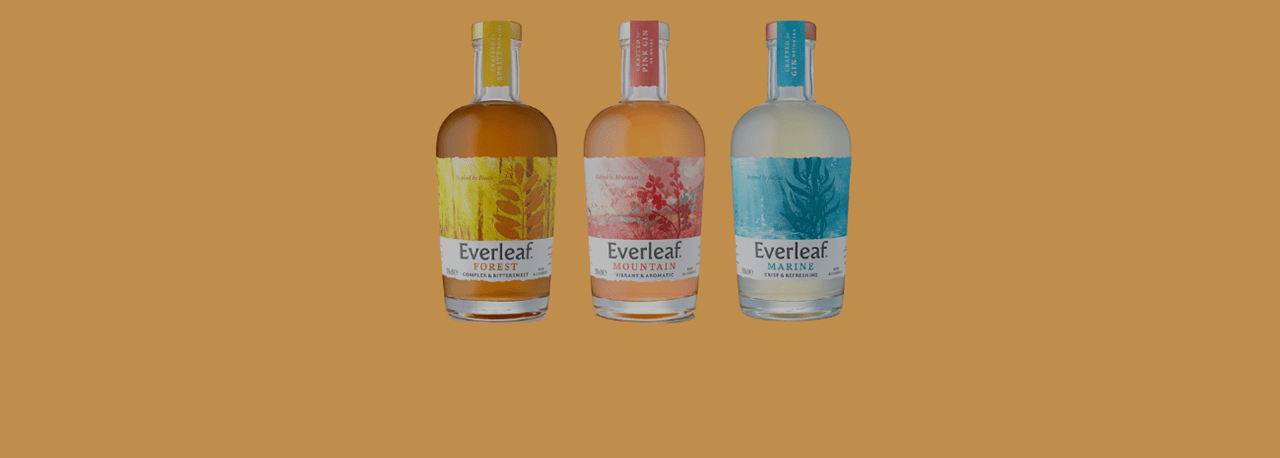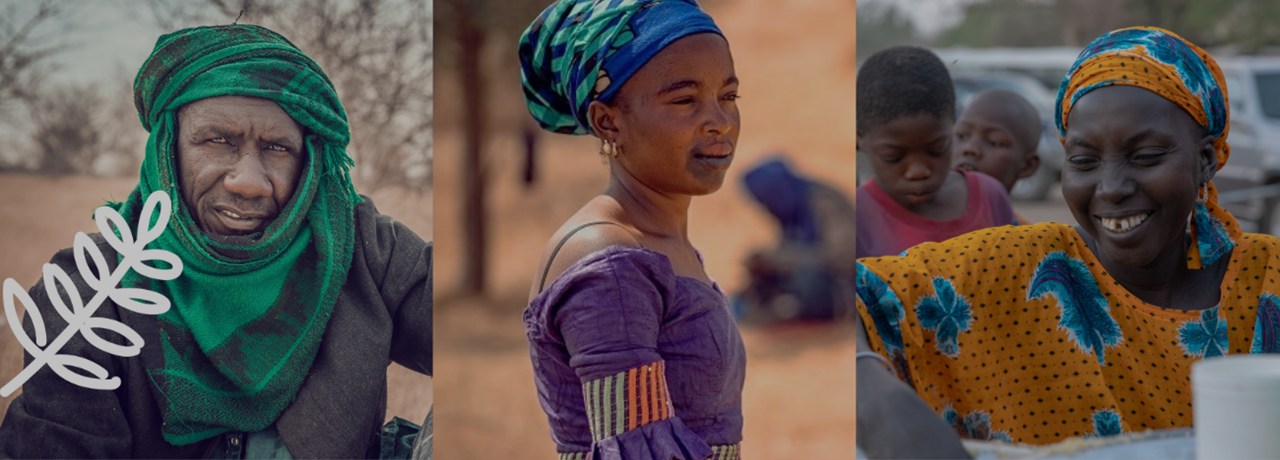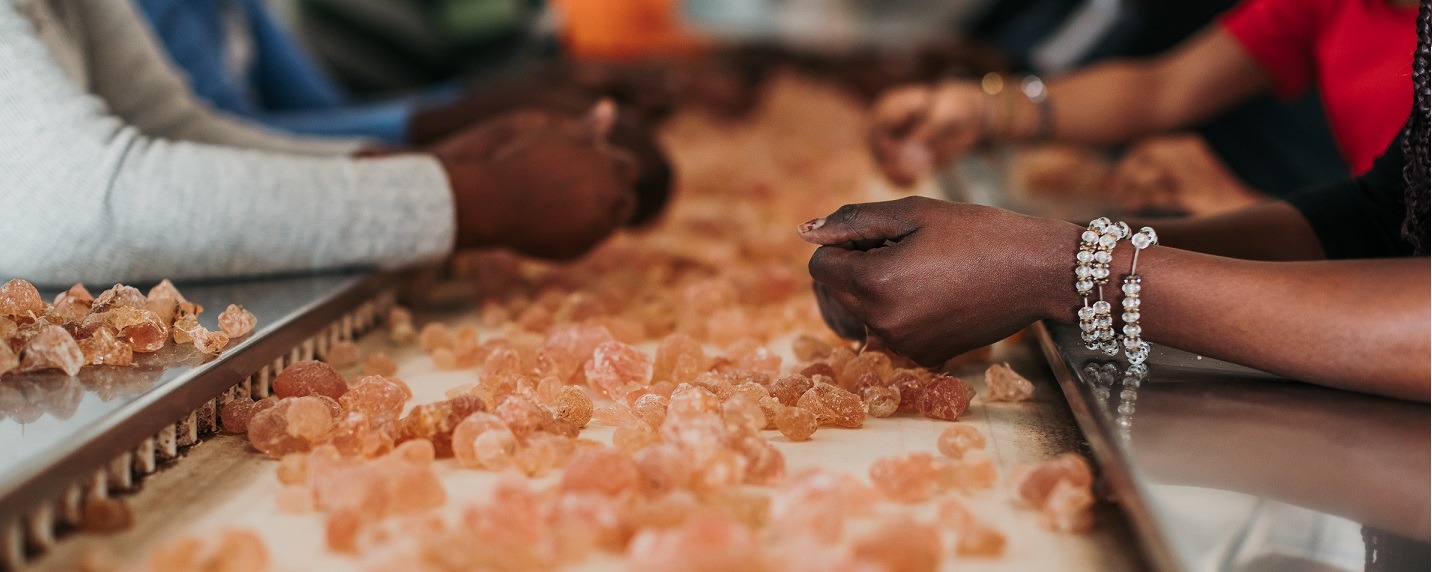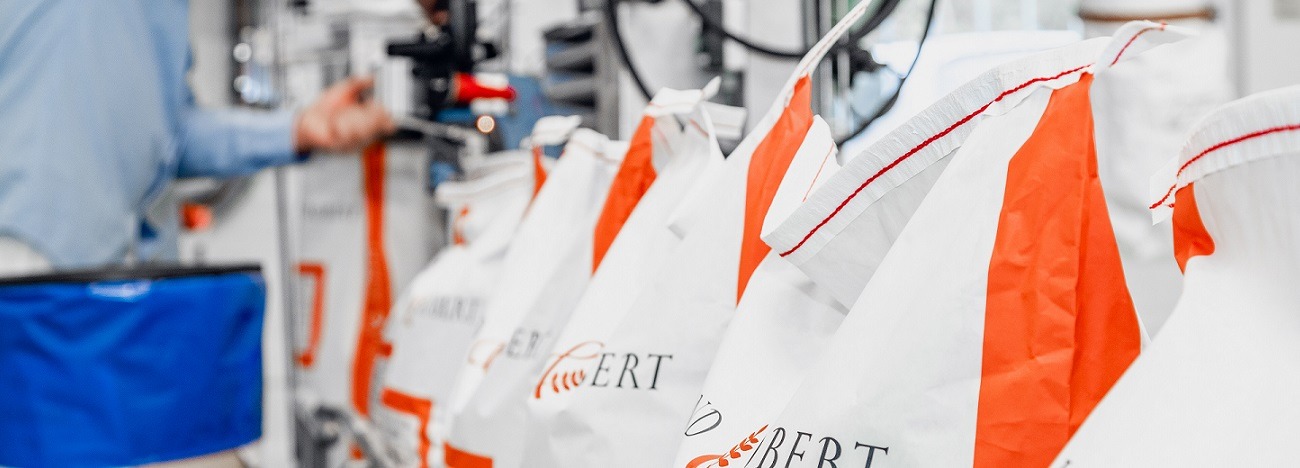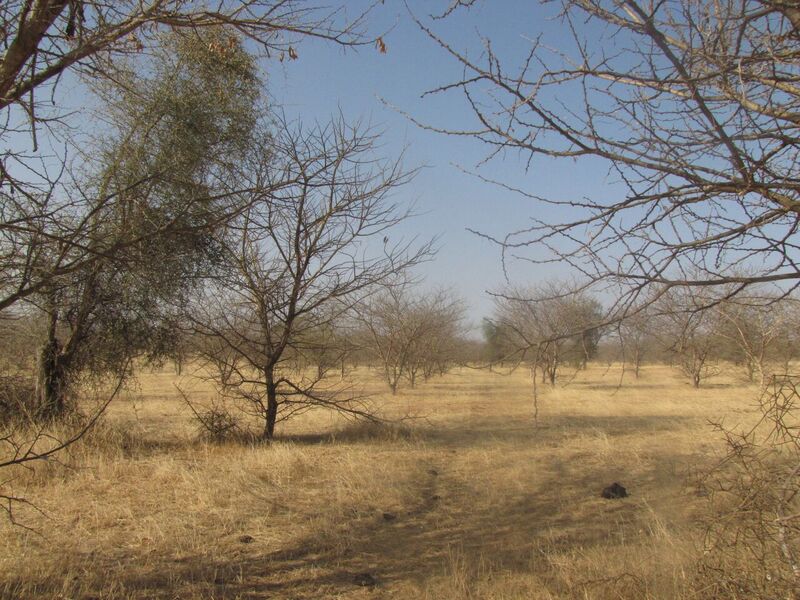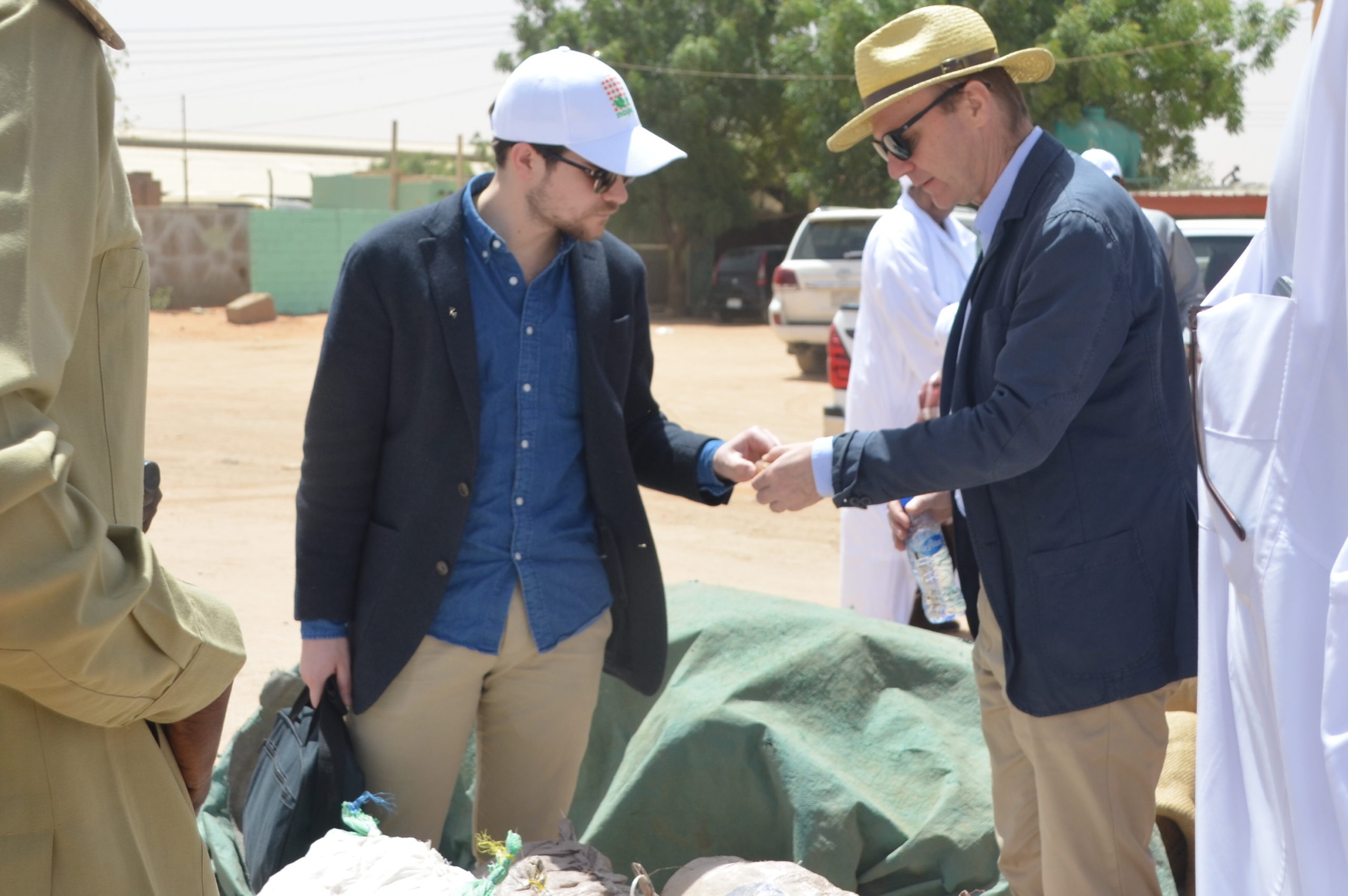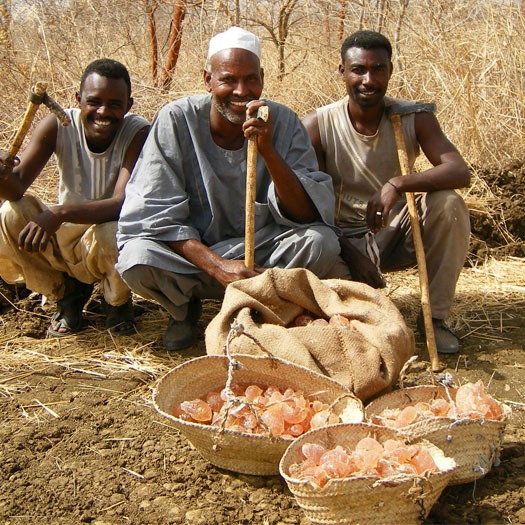Alland & Robert obtient la note d'argent d'EcoVadis à la suite de l'évaluation de la responsabilité sociale des entreprises
Alland & Robert obtient la médaille d'argent EcoVadis pour ses performances en matière de RSE.
Alland & Robert a reçu la médaille d'argent à l'occasion de l'évaluation annuelle de l'organisme EcoVadis
Récompensé pour son système de gestion de la responsabilité sociale des entreprises, Alland & Robert obtient la médaille d'argent EcoVadis. Ce score nous place parmi les 25% des entreprises les mieux notées par la plateforme.
Cette note évalue les performances des entreprises en matière de RSE en fonction de quatre critères :
- Achats responsables,
- Impact des activités de l'entreprise sur l'environnement,
- Éthique des affaires
- Le bien-être des employés.

Cette évaluation de l'une des agences de notation les plus réputées en matière de développement durable souligne l'engagement d'Alland & Robert à mettre au premier plan une politique et des objectifs ambitieux en matière de développement durable, ainsi que notre volonté de travailler dur pour mettre en œuvre des actions et des pratiques concrètes au sein de notre entreprise et avec nos parties prenantes.
La plateforme de notation EcoVadis a été créée pour évaluer les performances en matière de RSE. Elle est basée sur 21 critères et 4 thèmes principaux qui sont : Environnement, Droits sociaux et humains, Ethique et Achats responsables via un examen de l'intégration des principes du développement durable dans l'activité de chaque entreprise.
Cette méthodologie est basée sur les normes internationales de développement durable, en particulier la Global Reporting Initiative (GRI), le Pacte mondial des Nations unies et la norme ISO 26000. L'objectif est de mettre en place un système de gestion de la RSE efficace, composé de politiques, d'actions et de rapports sur les résultats. Afin de prendre pleinement en compte les impacts réels d'une entreprise, le cadre d'évaluation est adapté à chaque entreprise en fonction de son secteur d'activité, de sa taille et de sa localisation géographique.
De plus amples informations sont disponibles sur le site web d'EcoVadis.
Everleaf has chosen Alland & Robert for their drinks
It can be a challenge to find non-alcoholic choices that have any real flavor, quality, or character. Paul Mathew, the founder of Everleaf, created three non-alcoholic aperitifs to meet growing consumer demand.
What do they have in common? They are all made with Alland & Robert acacia gum. Paul Mathew believes this ingredient makes all the difference, giving his natural botanical blends their subtle flavor, silky texture, and full mouthfeel.
Interview of Paul Mathew, founder of Everleaf.
Why did you enter the non-alcoholic beverage market?
Paul Mathew: Today’s market is being driven by a growing demand for beverages that are non-alcoholic … but not flavor-free! The impetus for this shift is people’s improved awareness of how excessive alcohol consumption can be harmful to their health.
But even people who don’t choose to drink still want tasty alternatives with adult sophistication, especially when enjoying the nightlife in cocktail bars and clubs. But making such a drink presents plenty of challenges: a mouthfeel that’s comparable to spirits, rich, complex aromas, and visual appeal.

What does acacia gum bring to cocktails made using your Everleaf beverages?
P. M. : Acacia gum is really the ingredient that changes everything! It gives each sip a silky, delicate texture. It’s also important as a binder and lengthens the finish on the palate, leaving more time for the various flavors to unfold. When we drink wine, bourbon, or a cocktail, it awakens all our senses: sight, smell, earing, touch, and, of course, taste. The aromas evolve and the drink’s texture, thickness, or fluidity make the tasting experience complex and complete, something you don’t get with non-alcoholic beverages.
As a conservation biologist with long family ties to botany, as well as a former bartender or “mixologist,” I wanted to successfully craft non-alcoholic beverages that were truly multifaceted and delicious. My expertise in both plants and spirits helped me in creating three different beverages, and I use acacia gum in all of them as a binder and to add texture without distorting the flavors. Everleaf blends give you an experience as sophisticated as those you enjoy with alcoholic cocktails.
Why did you choose Alland & Robert?
P. M. : I always carefully select the ingredients I use: I like to know the story behind them and be confident of their origins and how they’re produced. I want to be able to tell our clients the origin of every single ingredient I put in my drinks. That’s one reason I chose to work with Alland & Robert. Their transparency, the way they care about their harvesters’ standard of living, and the longstanding relationships they forge with these workers are unlike anything else on the market.
Présentation de la Fondation d'entreprise
Alland & Robert is very proud to introduce its Company Foundation, a France-based non-profit organisation whose goal is to reinforce Alland & Robert’s commitment towards the environment and the communities linked to natural gums.

Purpose
The purpose of the foundation is to initiate, support and follow various projects in line with its mission in countries where Alland & Robert operates, and more generally in the African continent where most of our raw materials come from.
Mission
The foundation’s mission is to make a difference within the communities where Alland & Robert sources natural gums. We focus our efforts on:
♦ Supporting communities through various projects related to education, health, infrastructures, women empowerment.
♦ Environment preservation and focus on the African nature and biodiversity conservation.
These projects are initiated and created thanks to the know-how of Alland & Robert, who has over 135 years of expertise in natural gums and partnerships with African communities.

Rapport sur la responsabilité d'entreprise 2020
TÉLÉCHARGEMENT DU RAPPORT : Notre rapport 2020 sur la responsabilité d'entreprise est sorti !
Alland & Robert s'efforce d'être durable et de fournir à ses clients et aux consommateurs finaux des ingrédients naturels, biologiques et éthiques. Nous sommes fortement ancrés dans le Sahel où nous soutenons nos fournisseurs et toutes les communautés qui travaillent dans les industries de l'acacia et de la gomme de Karaya.
Notre rapport sur la responsabilité d'entreprise est un résumé de toutes nos actions et initiatives en faveur du développement durable. Nous espérons qu'il vous passionnera et vous informera sur le monde des gommes naturelles !
Contactez-nous pour recevoir notre rapport sur la responsabilité d'entreprise 2020 !
[weforms id="2678″]
Alland & Robert peut utiliser vos données de contact pour vous tenir informé de ses produits et services par courriel ou par téléphone. Vous pouvez à tout moment retirer votre consentement au marketing en cliquant sur le lien de désinscription figurant dans l'e-mail en question ou en envoyant un e-mail à info@allandetrobert.fr.
Vous trouverez de plus amples informations sur le traitement des données dans notre avis de confidentialité. En soumettant ce formulaire, vous reconnaissez avoir lu et compris notre avis de confidentialité.
Alland & Robert announces verification by NON-GMO project
Alland & Robert announces verification by NON-GMO project
Alland & Robert has obtained NON GMO verification for its acacia gum references, karaya gum reference and its texturing ingredient Syndeo®.

Alland & Robert is proud to announce its Non-GMO Project Verified products are produced in compliance with the Non-GMO Project Standard. This is an important process that confirms Alland & Robert’s commitment to manufacture natural, unadulterated products, and offer the highest quality of gums.
The Non-GMO Project is a US-based non-profit organization committed to preserving and building sources of non-GMO products, educating consumers, and providing verified non-GMO choices. It is North America’s most trusted seal for GMO avoidance for consumers who are concerned about what’s in their food.

Alland & Robert CEO Frédéric Alland said: “This verification by the NON GMO project is step forward for us, and we will continue to promote the use of natural products in the food and cosmetic industries. It will help us provide more transparency to our customers looking for premium and vegetal ingredients.”
15 Alland & Robert references have been verified by the NON-GMO Project, including 13 Acacia Gum qualities. Acacia gum, or E414, is a natural, vegetal and healthy ingredient used in the food and cosmetic industries for its functional properties and a soluble fiber. Acacia gum is today found in thousands of day-to-day products all over the world.
The complete list of verified references can be found here.
SOS Villages d'Enfants ouvre une école au Mali avec l'aide d'Alland & Robert
SOS Villages d'Enfants ouvre une école au Mali avec l'aide d'Alland & Robert
Dans un pays comme le Mali, où le taux de scolarisation dans le secondaire n'est que de 41,4 % [1], l'avenir semble sombre pour les jeunes. De plus, cette image d'un avenir difficile est aggravée par le fait que 25,1 [2] de tous les enfants sont soumis au travail forcé et que 52 % d'entre eux sont mariés avant l'âge de 18 ans [3]. C'est pourquoi Alland & Robert a soutenu l'ouverture d'une nouvelle école à Khouloum, construite par son partenaire de longue date SOS Villages d'Enfants.

Cette nouvelle structure révolutionnaire, ayant ouvert ses portes en septembre 2018, offre un espoir pour l'avenir à 315 enfants âgés de 6 à 15 ans, sous l'œil attentif de 11 employés à temps plein. "Khouloum étant situé à Kayes, l'un des districts les plus pauvres du Mali, SOS Villages d'Enfants a rapidement décidé que des efforts spécifiques devaient être fournis afin de s'assurer que tous les enfants se verraient accorder le droit fondamental à une éducation de qualité." Isabelle Moret, directrice générale de SOS Villages d'Enfants France, ajoute : "Khouloum est la quatrième école d'apprentissage au Mali. " Khouloum est la quatrième école que nous construisons au Mali et nous ne pouvons qu'espérer qu'elle connaîtra le même succès que nos autres écoles.
Lorsque SOS Villages d'Enfants lui a proposé ce projet, Fréderic Alland, PDG d'Alland & Robert, a su qu'il fallait faire quelque chose. "Nous sommes fiers d'être partenaires de SOS Villages d'Enfants depuis 2013, mais lorsqu'ils nous ont proposé cette opportunité, nous savions que nous devions apporter notre aide." Il remarque. "Le Mali est l'un des pays africains où nous nous approvisionnons en gomme d'acacia, et nous nous sommes engagés à investir dans les communautés liées à l'acacia."

Cette école, ouverte aux enfants des villages environnants, vient compléter le village déjà construit sur place où les enfants sans soutien parental sont pris en charge par une mère SOS. "L'école est vraiment l'aboutissement de ce projet à long terme à Khouloum, car elle nous permet de contribuer à la réalisation de la convention relative aux droits de l'enfant et à l'objectif de développement durable n°4. En effet, les enfants privés de soins parentaux, ou autres enfants vulnérables, ont les mêmes droits à une éducation de qualité que tous les autres enfants et ne doivent pas être laissés pour compte". ajoute Matthieu de Bénazé, responsable des programmes internationaux de SOS Villages d'Enfants France.
[1] Enquête de l'UNESCO 2017 - http://uis.unesco.org/country/ML
[2] Rapport du Département d'État américain 2012-https://photos.state.gov/libraries/mali/96825/International%20Report/mali_child_labor_eng_2014.pdf
[3] Enquête de l'UNICEF 2017 - https://www.girlsnotbrides.org/child-marriage/mali/
Alland & Robert, une réussite familiale
Alland & Robert, a familly success story
Founded in 1884, Alland & Robert has seen five generations of visionary leaders build the company’s reputation and expertise in the international acacia gum market. From Francisque to Frédéric Alland, the company has been transformed from a humble family business story to a major undisputed forerunner in the natural gums industry, exporting to 69 countries on all continents.
Recently named as Deputy General Director, 25-year-old Charles Alland is about to take over the family business. We managed to interview Charles about his vision of the acacia gum market before he headed off to Sudan to meet with our suppliers and symbolically plant a tree to mark National Tree Day.

The company has been passed down through five generations and has 134 years of expertise in acacia gum as well as other natural gums. Charles Alland, can you tell us a little bit about yourself and your family’s business tradition?
The family business was created in Paris by Francisque Alland and his partner, Alfred Robert, and they started off sourcing acacia gum in Africa to import to Europe. Over the years the company grew from strength to strength, with each generation of the family making a valuable contribution – for example, my father, Frédéric Alland, became CEO of the company in 1984. It was under his influence that Alland & Robert became widely-known on an international level. It was thanks to these visionary leaders that the business has been shaped into what it is today: a global leader in natural ingredients which now exports all over the world.
As a child I had the chance to travel to Africa many times, especially Senegal, and discovered African culture, and most importantly, its agriculture! Here I learned about Acacia trees and how they have been cultivated in Africa for thousands of years. Walking around the bush was a great way to learn about the different species of Acacias which not only look different, but also produce different types of gum!
You are in Sudan this week to meet the suppliers. What is your take on the region and the overall impact the acacia gum industry has on it?
Acacia gum production is a very important economic resource for the underprivileged populations of the Sahel and Sub-Saharan Africa, which includes Sudan. In fact, around 10 million people live directly or indirectly thanks to its production. Alland & Robert works with African populations through a range of local suppliers to help improve their working and living conditions, giving them the chance to participate in training courses, enabling access to drinking water, and providing medical care for all workers.
Through its African partners, the company is also heavily involved in providing employment and training for local women who do not have the same access to education and jobs. We have several new CSR projects in the pipeline for Sudan next year, where we will not just train the farmers to harvest acacia gum more sustainably, but also ensure they have access to vital natural resources.
For the past few years, additives have been in the spotlight – and not for the best of reasons – and consumers are becoming increasingly cautious of the products they buy. Studies show that acacia gum is one of the most natural additives available to consumers, yet very few people have heard of it. Could you tell us a bit more on what acacia gum is all about?
Acacia gum is a truly versatile product which is used in a wide variety of products, including food, beverages, cosmetics and pharmaceuticals. In fact, it is used in almost all industries! At Alland & Robert, we are convinced that acacia gum has many more undiscovered properties, particularly in terms of nutrition and health foods. Since 2012, the company has invested €400,000 in various equipment to compare different natural gums which are made of complex polysaccharide polymers.
Our researchers at the IATE and UMR laboratories carry out primary research and develop new applications in collaboration with the University of Montpellier, which has a research unit especially for agro-polymers and emerging technologies. What’s more, our new laboratory in Normandy now has an application research section where we have started to test different recipes containing acacia gum (such as drinks, sauces, pastries, etc.). The lab is a new tool to broaden our knowledge, but most importantly, to help our technical assistance team find solutions for customer issues.
Here are some photos of the trip!
gomme d'acacia, l'or du Sahel
gomme d'acacia, l'or du Sahel
Malgré l'idée reçue selon laquelle l'Afrique n'est constituée que de terres arides, le continent africain recèle de nombreuses ressources à fort potentiel, dont le gomme d'acacia. Présent dans la vie quotidienne et participant à la "révolution verte" de l'Afrique pour transformer ses faiblesses en atouts, le gomme d'acacia joue un rôle social, économique et environnemental important dans les pays du Sahel méridional.
Où peut-on trouver la gomme d'acacia?
La gomme d'acacia est utilisée à des fins médicinales, cosmétiques et alimentaires depuis quatre millénaires et est aujourd'hui présente sur une grande partie du territoire africain. Il est produit dans toute la "ceinture de gomme", qui s'étend du Sénégal à l'Érythrée, dans les zones sèches et semi-arides du sud du Sahara. En effet, 95 % de la gomme d'acacia a été exportée du Soudan, du Tchad et du Nigeria en 2012. La gomme d'acacia est également produite au Sénégal, au Cameroun, en Mauritanie, au Mali, au Niger, en Ouganda, au Burkina Faso, au Kenya et en Tanzanie.
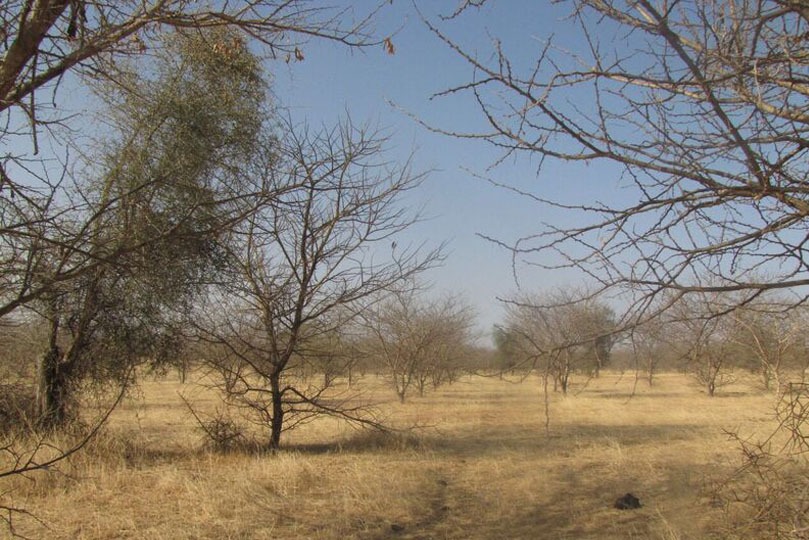
Une ressource économique considérable
Outre son importance géographique, la gomme d'acacia constitue une formidable ressource économique pour les communautés pauvres du Sahel et de l'Afrique subsaharienne. Dans ces régions, environ trois millions de personnes peuvent vivre au quotidien grâce à la culture de la gomme d'acacia , qui représente une grande partie des revenus des agriculteurs, en particulier dans les zones sahéliennes. La gomme d'acacia est apportée directement aux agriculteurs et le commerçant l'achemine directement sur le marché, ce qui permet d'introduire des actifs vitaux dans l'économie et de réinvestir directement l'argent sur le marché. De plus, la culture de la gomme d gomme d'acacia rassure les communautés locales en dissuadant les organisations illégales, dont la motivation première est le faible taux d'emploi et de revenu.

Un impact très positif sur l'environnement
Le développement de la production de gomme d'acacia est fortement recommandé pour enrayer le dépeuplement et la pauvreté, qui sont étroitement liés, car la pauvreté oblige les gens à couper les arbres pour vendre le bois sur le marché, dans l'espoir de gagner suffisamment d'argent pour survivre. La principale solution consiste à diversifier les ressources économiques en connaissant et en exploitant le potentiel de l'agriculture locale qui peut faire face aux conditions climatiques arides. L'acacia prévient la désertification en nourrissant et en fertilisant les sols. La culture de la gomme d'acacia est donc doublement bénéfique puisqu'elle génère un revenu pour l'agriculteur et favorise la croissance d'autres cultures.

